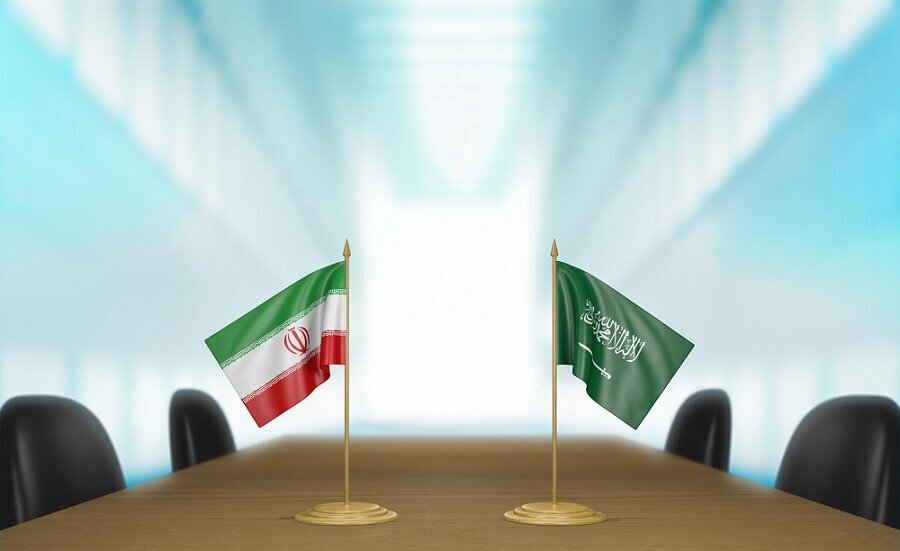MBS gamble

TEHRAN – In the midst of a diplomatic war of words between Iran and the heads of two Arab organizations, Western media outlets claimed that Iran and Saudi Arabia have quietly begun talks in Baghdad to repair their relations, a claim that was rejected as untrue by sources close to both Tehran and Riyadh.
The Financial Times reported on Sunday that Saudi and Iranian officials held the first round of their bilateral talks in Baghdad on April 9 and the next round is scheduled to take place next week. Citing regional officials, the newspaper said the Yemeni Ansarallah’s attacks on Saudi Arabia were discussed in the negotiations.
Reuters confirmed the Saudi-Iranian talks, saying they touched on Lebanon, which is facing a political vacuum amid a dire financial crisis.
Saudi Arabia severed diplomatic relations with Iran in January 2016 after Iranian protesters, enraged by the Saudi execution of prominent Shia cleric Sheikh Nimer al-Nimr, stormed its embassy in Tehran. Since then, Saudi Arabia have struck a tough tone on Iran and strongly supported former U.S. President Donald Trump’s so-called “maximum pressure” campaign against Iran.
The reported talks in Baghdad are thought to be the first serious contact between Tehran and Riyadh since 2016.
Saudi Arabia denied the talks. Citing a senior Saudi official, the Saudi-owned Arab News said no direct talks have been held with Iran.
The Beirut-based news channel Al Mayadeen also rejected that Saudi Arabia and Iran held talks in Iraq. Citing an Iranian source, the news channel said the reports of Saudi-Iranian talks were untrue. However, an Iranian official told Reuters that the talks were “a low-level meeting to explore whether there might be a way to ease ongoing tensions in the region.”
The talks are not surprising, at least from the Iranian standpoint; and the Saudi rush to deny the reports is also understandable. Iran has long been calling for talks with Saudi Arabia and other Arab countries as well. But the Iranian calls often fell on deaf ears in Riyadh largely because the de facto ruler of Saudi Arabia, Mohammad bin Salman had been betting that the Trump pressures on Iran would make Tehran blink first and acquiesce to his demands, which center on allegations of Iranian interference in something none of Iran’s business, i.e. the Arab world.
The Saudi crown prince, also known as MBS, brushed away all of Iran’s offers of compromise over the past few years, adopting a wait-and-see approach toward Iran to see how Trump’s pressures would end with Iran. These pressures failed to bring Iran to its knees, something that even Biden officials, the current allies of MBS, openly admit.
Regardless of MBS's close relations with the Trump administration, Iran continued to extend its hand to the Saudis after Trump lost the U.S. presidential election in November. Earlier this year, Saeed Khatibzadeh, spokesman for the Iranian Foreign Ministry, expressed Iran’s readiness to patch up relations with Saudi Arabia. He pointed out that if Riyadh seriously puts policy reforms on its agenda and concludes that the solution to problems lies in “regional cooperation,” Iran will be the first country to welcome these reforms.
“We have always underlined that regional countries should arrive at a common understanding regarding the regional problems,” Khatibzadeh stated, noting that such understanding would help establish a “security mechanism” that could be used to govern the region.
“The Saudis may have some concerns, and by the way, we emphasize that we need to talk about these concerns,” Iran’s Foreign Ministry spokesman said.
But the Saudis refused to seize on Iran’s offers of cooperation. And now that Iran has resumed nuclear talks with the remaining parties to a 2015 nuclear deal – officially known as the Joint Comprehensive Plan of Action (JCPOA)- the Saudis are busy asking the negotiating partners of Iran to give them a seat at the negotiations room. They do so while Iran, as well as Russia, called on them to resolve outstanding regional issues separately from the JCPOA negotiations.
Nayef Al-Hajraf, the secretary general of the (Persian) Gulf Cooperation Council, has recently sent a letter to the negotiating parties in Vienna – China, Russia, France, the U.S., UK, and Germany-, saying that the Iran nuclear deal talks in Vienna must address the concerns and interests of the Persian Gulf countries to boost security and stability in the region. In addition, Secretary-General of the Arab League Ahmad Abul Gheit issued a statement calling for a similar thing.
Khatibzadeh strongly rejected the “interventionist” remarks of Al-Hajraf and Abul Gheit.
“These statements are not aimed at calling for cooperation; rather, they seek to disrupt the trend of technical talks in Vienna,” he said.
“The secretaries general of these institutions should know that Iran is a member of the International Atomic Energy Agency (IAEA) and all of Iran’s nuclear activities are monitored by the safeguards programs of this agency,” said the spokesman.
Leave a Comment